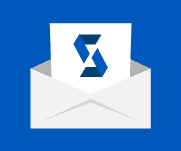Do you have a job interview coming up and are unsure how to prepare? Jon will get you ready to face one of the most stressful aspects of your working life.
I know, I know! You’ve been told this since you were at school, but it’s true. Preparation is key when attending a job interview. You set yourself at a massive disadvantage if you don’t prepare properly by doing your research, especially when research is so easy to do nowadays. There is no excuse not to do it.
It’s easy just to assume ‘It’ll be alright on the night.’ That might be true on some occasions, but from an interviewer’s point of view, it can be such a disappointment and a waste of everyone’s time, if it’s obvious that you haven’t taken your preparation seriously by doing your groundwork.

To help you to ensure you’ve done the right research, I’m going to break it down into the old five Ws – Who, What, Where, When and Why.
How to Prepare for a Software Testing Interview:
Who?
A massive factor in your success or failure at an interview, is who is sat on the other side of the table, and you should see it as a top priority to ensure you know who that person is. If the HR rep or recruiter aren’t sure who will be conducting the interview, push them to find out.
Once you know, now it’s time to hit Google, and hit it hard! You want to internet stalk these people like they’re your ex’s new partner. You want to know what technologies and methodologies they have used and if possible which they prefer. You want to know what their hobbies and interests are, especially if there are any you share.
Essentially you want to give yourself the best idea of the kind of person/people you’re going to be dealing with. This way you can craft your answers and behaviour more accurately for your audience.
What?
What is the job? You need to research the job specification and make sure you at least understand what every word on that page means. You may not have used certain technologies or methodologies, but you should be able to give a decent answer if you are asked what they are. Another way to get a better idea of what the job entails is to look at the LinkedIn profiles of others in the same or similar roles. Take a look at what they list as their roles and responsibilities (I’d recommend changing your LinkedIn settings so to hide your identity from those you view, to avoid looking a little over-enthusiastic/creepy).
Another for this section is, what does the company actually do? It’s surprisingly easy to get carried away with what the job is and what you’re going to be paid, but not research the history of the company and what it sets out to do. Look through any news stories, Wikipedia pages, and the company website and pick up as much information as you can.
They’re going to expect you to know all of this, so don’t embarrass yourself by drawing a blank at such easy questioning.
Where and When?
Where and when is the interview? It’s so easy to find the route and set the alarm in the morning, but it’s also so easy to hit traffic or take a wrong turn on the way. I’ve done it a couple of times, and it’s a horrible experience turning up late to a job interview.
Make sure you know the route perfectly, or at least completely trust your satnav. If possible do a trial run, preferably at the same time on a weekday, so you get an idea of traffic. Also, if there are more than one reception or entrance, find out which one you’re supposed to go to and ensure you’re there roughly 15 minutes early. Alternatively, Google Maps has the capability of roughly estimating how long the route will take during certain hours of the day, which could be useful in this situation.
If you arrive too early, you can always catch your breath in the car or at the bus stop and use the time to go over any notes or questions you have. If you get there too late then you’ll be flustered, you’ll look bad, and you will start off on the back foot.
Why?
Why do you want this job? I’ve explored this before in Is That New Job Right For You? Ask the Right Questions, but it’s vitally important to know why you actually want this job. The answer to this question will dictate the questions you ask them, the answers you give them and generally how you approach the whole affair.
Also, consider why you’re the right person for them. You’ve studied the job specification, and now you need to work out why you fit the bill. Alternatively, if you don’t quite match what they’re after, you need to be able to explain why you’re worth the compromise.
Conclusion
Job interviews aren’t fun, and you’d struggle to find any way to make it a relaxing event, but if you organize yourself and prepare thoroughly, you can minimise the stress and possible embarrassment on the day. Without doing these things, you’re also doing yourself a disservice and will ultimately end up just wasting both your time and theirs.
Hopefully the advice in this post has helped you to prepare for your upcoming software testing interview. Good luck!

